If you’re getting ready to sell your car and want to maximise its resale value, it’s important to understand the variables at play.
The value of your car is determined by a variety of car and market-related factors. Key car-related factors include the vehicle’s age, condition, and even its colour. Market factors such as fuel prices, interest rates, and seasonal demand can also drive your car’s value up or down.
In this guide, we’ll explore each of these factors in detail and break down how they can affect your car’s value. You’ll learn everything you need to make informed decisions when selling your car.
Get a free valuation
Car-specific factors that affect value
Certain value factors relate to your car itself – and many of these are within your control. Considering these variables when selling your car can help you maximise your returns.
Mileage
The more miles your car has covered, the lower its value is likely to be.
A higher mileage will negatively impact the value of your car, as it is a direct indication of wear and tear. Over time, the condition of essential components such as the engine, suspension, and transmission will deteriorate more and more.
It’s also likely that a high mileage car will have accrued some superficial and structural damage, which also decreases value.
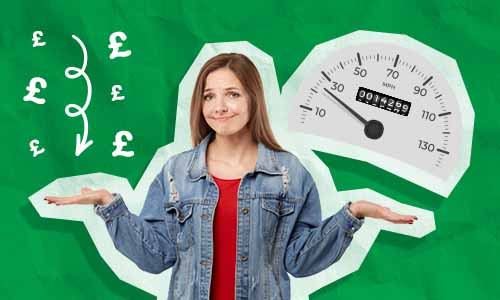
Learn more about how car mileage impacts resale value.
Age
Although depreciation rates can vary across manufacturers and models, it’s a given that your car will lose value over time, unless you’re lucky enough to own a rare or classic car.
New cars see the steepest rate of depreciation within the first 12 months. The good news is that depreciation slows down and stabilises as your car gets older. Keeping up with regular maintenance and servicing your car in line with the manufacturer’s recommendations can help slow depreciation further.

Learn more about how car age affects depreciation.
Service history
If you want to get the best possible price for your motor, it’s important to ensure that the full service history (FSH) is available for buyers to inspect.
Your car has an FSH if the paperwork for all previous services, repairs, and part replacements is accounted for. An FSH can boost your car’s resale value, as it provides buyers with greater reassurance that the vehicle has been well looked after.
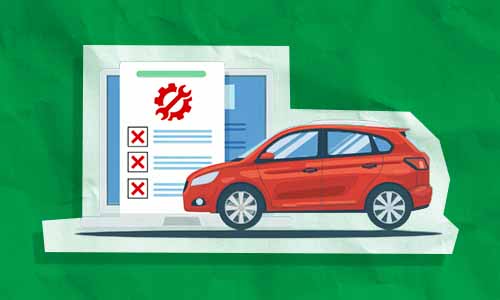
Learn more about how service history impacts car value.
Condition (interior & exterior)
Whenever a prospective buyer views your car, they’ll usually conduct a thorough interior and exterior inspection, taking note of any dents, scratches, and marks. They may use any imperfections to leverage a discount or walk away from the sale.
Therefore, if you want to preserve your car’s value, it’s important to keep it in good condition. If your car has suffered a few scrapes, this can reduce its kerb appeal. You should address any cosmetic damage to uphold its aesthetic appeal and resale value.
Desirability is a significant consideration when determining the value of any vehicle – and greater damage often means less desirability.
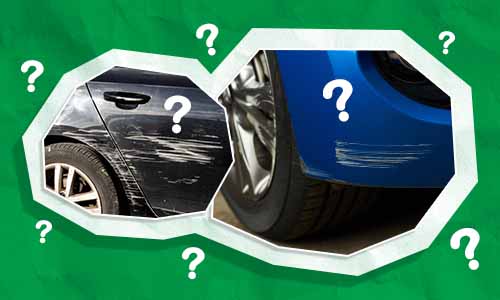
Learn more about how a car’s condition affects resale value.
Accident history
It’s safe to say that if your car has been damaged in an accident, its resale value will be negatively impacted.
Here are the key factors that determine how much value a car will lose after an accident:
- The extent of the damage suffered.
- The category assigned (A, B, S, or N), if the car was written off by your insurer.
- The quality of any repair work carried out.
The more damage your vehicle has sustained, the more its market appeal and resale value will be reduced. Poor quality repairs will raise doubts about your car’s reliability, so it’s important to visit a reputable mechanic who will carry out the work with genuine parts.
When a car has been in an accident, it may also be costlier to insure, which could deter some buyers.
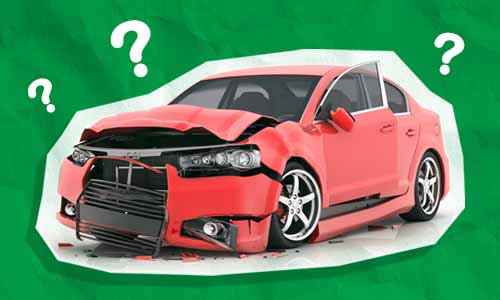
Learn more about how accident history impacts car resale value.
Ownership history
The number of owners your car has had will affect its value. Used cars with fewer owners are often favoured by buyers.
If a used car has changed hands several times within a short period, some prospective buyers will question its reliability. Furthermore, each owner will have driven it in a different manner in different areas. When there are multiple previous owners, it’s also harder to gauge whether a car has been consistently well looked after.
In many cases, a car with more owners will have a higher mileage, and may have succumbed to more wear and tear, which will impact its condition and resale value.
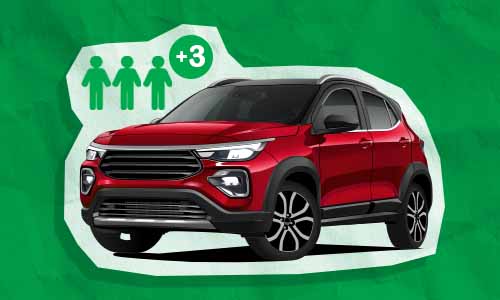
Learn more about how ownership history affects car value.
Make and model
The basic principles of supply and demand apply here; the greater the demand for a particular car model, the more it is likely to sell for.
Of course, the manufacturer’s overall reputation also comes into play. Used cars from brands known for producing high-quality, reliable, and prestigious cars tend to sell better than those of their less reputable rivals.
Demand can be impacted by both the popularity and reliability of a specific manufacturer and model, with consumer favourites and reliable cars holding more value over time.
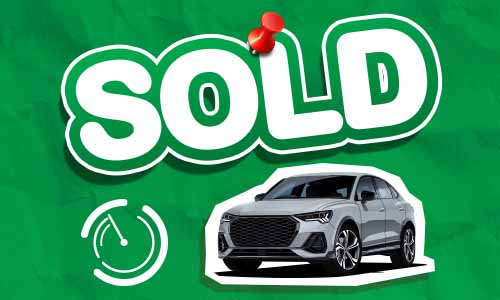
Learn more about the fastest selling new and used cars.
Modifications
When it comes to resale value, car modifications can be a double-edged sword.
While some buyers may find certain modifications desirable, others may view them as a drawback. This will depend heavily on the taste and preferences of each buyer, as well as the kind of modifications you’ve made to your motor.
Modifications that affect safety, insurance premiums, or deviate from manufacturer standards are most likely to hurt your resale value. If you want to avoid this, we recommend sticking to tasteful, practical upgrades.

Learn more about how modifications affect car resale value.
Car colour
Car colour is an often-overlooked value factor but carries more weight than you might think.
Neutral colours like black, white, and silver tend to hold value better as they appeal to a wider audience. On the other hand, bold colours such as bright yellow or neon green may limit your pool of potential buyers.
Keeping an eye on current consumer trends can help you gauge whether your car’s colour will increase or decrease its value.

Learn more about how car colour affects value.
MOT status
A MOT certificate signals to potential buyers that your car is roadworthy and meets the UK’s minimum road safety and environmental standards.
Cars without a valid MOT are often perceived as high-risk purchases. They’re usually worth significantly less than similar cars with in-date MOT certificates.
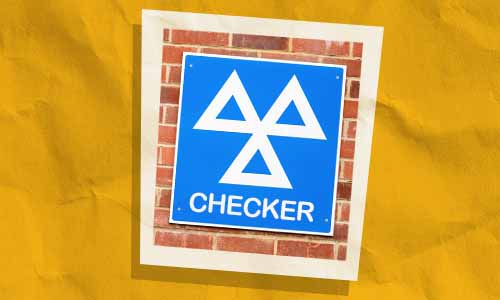
Use our free MOT check tool to review your car’s MOT status and history.
Repairs
Addressing minor repairs before selling your car is a simple way to increase its resale price. If your vehicle has small dents, minor scratches, or a malfunctioning light that you’ve been meaning to rectify, it’s well worth investing in these small fixes.
After all, these seemingly minor issues will reduce the perceived value of your car and may even deter some buyers. Taking the time to fix them can go a long way towards securing a better offer for your car.
Learn more about how repairs impact car resale value.
Warranty
Buying a used car always carries an element of risk, which is why an original or extended warranty is often a strong selling point.
Warranties reassure buyers that the cost of any unforeseen mechanical issues will be covered, making the car a more attractive purchasing option. In most cases, any outstanding warranty cover can be transferred to the next owner.
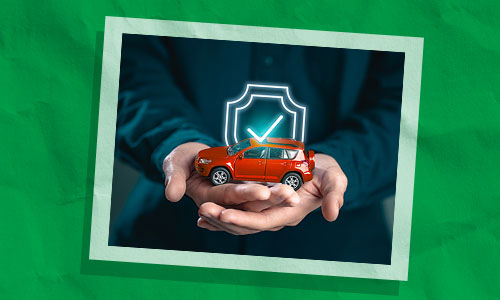
Learn more about how car warranties can affect your car value.
Presentation
First impressions matter. Cleaning, detailing, and presenting your car in the best possible light indicates to buyers that you’ve taken good care of it.
Before your first showing, it’s worth paying for a full valet or putting some time and attention into cleaning your vehicle inside and out. This attention to detail can help your car stand out and command a higher price.
Learn more about how to clean your car.
Fuel type
With consumers becoming more environmentally conscious and the UK Government introducing stricter regulations, fuel type is an increasingly important factor in determining car value.
As the 2030 ban on the sale of new petrol and diesel cars draws closer, demand for these car types has fallen. Although petrol cars remain popular thanks to their affordability, hybrids and EVs generally command higher resale prices due to growing environmental awareness, Government regulations, and lower running costs.
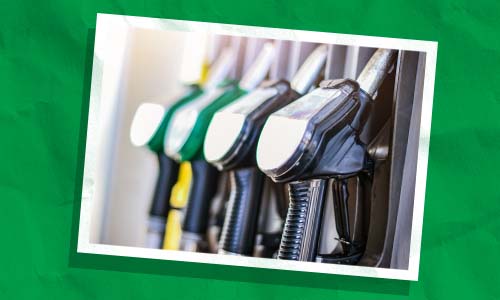
Learn more about how fuel type can affect your car value.
Transmission
Whether your car has a manual or automatic transmission will influence its resale value. In the UK, automatic cars are becoming more popular, especially among younger buyers who are more likely to take automatic driving tests.
This means used automatics tend to fetch higher prices. However, niche, collectable and high-performance cars with manual transmissions still appeal to many petrolheads.
Add-ons
Modern cars boast many more bells and whistles than their predecessors. Optional extras such as Apple CarPlay, Android Auto, advanced safety systems, and state-of-the-art infotainment technology are available with most new models.
These desirable add-ons can significantly enhance the value of your vehicle as buyers increasingly prioritise ease of use.
Fuel efficiency/range
Whether you have a traditional internal combustion engine (ICE) car or an electric model, better fuel efficiency or a longer range will increase your car’s appeal.
The cost of living is at the forefront of many driver’s minds. Therefore, used cars that are economical to run tend to command higher prices.
Safety rating
Safety-conscious buyers prioritise features such as multiple airbags, collision avoidance systems, and high crash-test scores. The assurance that a car can help protect them and their loved ones makes it far more appealing to potential buyers.
Euro NCAP rigorously tests many of the most popular car models on the UK market each year. These tests assess how well occupants and other road users are protected in a collision. Each model is awarded a safety rating between 0 and 5 stars based on its performance.
Recall status
If your car model is subject to recall due to a safety-related issue, you should ensure that the issue is fixed before attempting to sell your car. Addressing recall issues will improve the safety of your vehicle and its resale value.
Recall repairs are usually free to the owner of the vehicle. If the manufacturer has your contact details, you may be notified if your vehicle is subject to recall. However, it’s worth using the gov.uk recall check tool for your peace of mind.
Brand reputation
Each car manufacturer has its own reputation based on consumers’ perceptions. Some brands are known for safety and reliability, others for luxury, or driving performance.
Cars from manufacturers with more favourable reputations usually command higher prices. However, if a particular brand or model suffers a reputational hit, resale prices for the affected cars may suffer.
Battery health certification (EVs)
Electric car batteries cost thousands of pounds to replace, so used EV buyers are keen to find reassurance that they won’t face this cost anytime soon.
Battery health certificates include a State-of-Health (SoH) percentage, which refers to how much of the battery’s original capacity remains. A higher SoH score indicates better battery health, which often translates to a higher resale value.
Electric range (EVs)
Early EVs were troubled by limited ranges and infrastructure which meant drivers sometimes struggled to find a place to charge their motor on the go. Fortunately, improved chargepoint availability and ranges mean that electric motoring is now a viable option for many more drivers.
If your EV has a longer range, you can usually get a higher price for it. Some EV models on the UK market now have ranges over 400 miles, meaning they can comfortably complete most long drives on a single charge. These models are especially favoured by drivers who regularly make long trips.
If you happen to have a home charger, this can also bolster your EV’s resale value. Public chargepoints are subject to a 20% VAT rate, whereas the rate for charging at home is 5%.
Therefore, buying a used EV with all the home charging equipment is an enticing prospect for value-driven buyers.
Market specific factors
Market-specific factors can also push your car’s resale value up or down. Although you can’t control them directly, if you don’t need to sell your car right away, you may be able to optimise its value by waiting for certain market conditions to align.
In this section, we’ll highlight the major market factors that influence used car prices:
Demand
In many ways, selling a used car is like a popularity contest, with the most sought-after models selling faster and benefitting from higher resale values.
The resale value of your car is partly determined by how popular it is with consumers. In recent years, consumer preferences have shifted towards eco-friendly and fuel-efficient cars, meaning demand for EVs and hybrids has increased, while higher-polluting ICE cars are now less desirable.
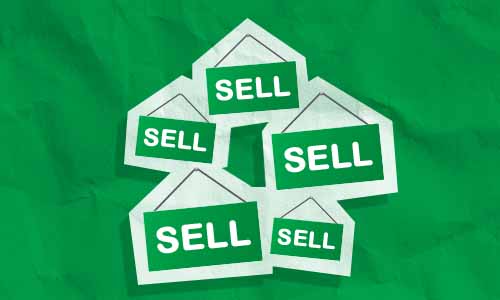
Supply chain issues
Component shortages and production delays caused by events such as the COVID-19 pandemic can also affect used car demand and prices.
During and after the pandemic, there was a global semiconductor shortage, which significantly slowed the rate at which new cars could be manufactured.
As a result, demand for new cars far exceeded the available supply. This led consumers to explore the used market and caused a sharp increase in resale values for used cars.
Interest rates
When interest rates surge and car financing becomes more expensive, buyers will turn to more affordable options. This often causes second-hand car values to increase. However, used luxury cars may be less attractive, due to their higher price tags.
Advances in automotive technology
In recent years, car technology has advanced at a rapid rate. Today’s drivers are used to a certain level of convenience and comfort – and there’s no turning back!
When Bluetooth technology and music streaming services became more prevalent, older cars without Bluetooth capability lost value.
Similarly, used cars that lack other features found in newer models, such as parking sensors, automatic braking, and phone charging ports also have lower resale values.
Fuel prices
Fluctuations in fuel prices are a significant factor in car valuation. Buyers will be more likely to spend money on an electric vehicle or a hybrid if fuel prices are particularly high.
Economic growth and recessions
If household budgets are tight due to low economic growth, car buyers are more likely to prioritise lower-priced used cars.
Conversely, high economic growth will make them more inclined to invest in higher-value vehicles, boosting the resale market.
New plates
For some people, driving around in a car with the latest registration plate is a point of pride.
New number plates are introduced twice each year - once in March, and again in September. When the brand-new plates arrive, resale values for older calls fall. Nearly-new cars will see the sharpest value decrease, whereas the value loss for older cars is more minimal.
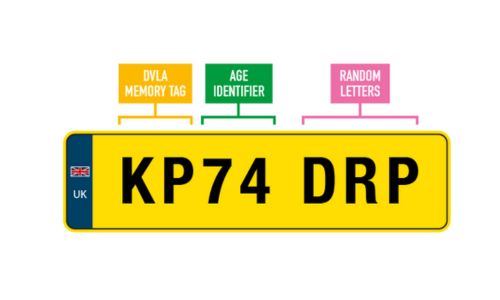
Government policies
The UK Government has introduced various initiatives to encourage greener driving practices, including chargeable emissions zones such as the Ultra Low Emission Zone (ULEZ) and subsidies for EVs.
These policies aim to make EVs more attractive, whilst discouraging the use of higher polluting cars.
Within the ULEZ and similar chargeable zones, daily charges are levied on cars that fail to meet the minimum emissions standards. As a result, used prices for affected models have fallen.
It is also anticipated that used prices for petrol and diesel cars will continue to fall as the 2030 ban on the sale of new ICE cars grows closer.
Seasonality
As the seasons change, so does the level of market demand for certain vehicles.
For example, during the warmer months, buyers are more likely to look for convertibles - and in the colder months, they gravitate more towards 4x4 and SUVs, thanks to their resilience in inclement weather.

Learn more about how car value changes at different times of the year.
What affects car value the most?
Certain market factors such as brand reputation, interest rates, the popularity of your car model, and supply chain issues can profoundly affect your car’s resale value. However, these factors are beyond your control.
Whilst they may sometimes align in your favour, you could be waiting a long time for this to happen. Meanwhile, your motor will continue to be affected by wear and depreciation.
Therefore, it’s usually best to focus on the factors you can control. Your car’s mechanical and cosmetic condition will have a significant impact on its resale value, regardless of the current market climate. The cleanliness of your car is also a key factor; investing in professional detailing can help you attract more interest and better offers.
How do I decide if I should sell my car?
Deciding whether it’s the right time to sell your motor can be tricky. However, paying attention to market conditions and your personal circumstances can help. When you’re aware of key factors such as market conditions, seasonal demand, and fuel prices - and how they affect the value of your motor, you’ll know when it’s a good time to sell.
We also recommend using our free car valuation tool to track how your car’s value changes over time.
Remember to provide as much information as you can about the details and history of your motor to ensure accurate valuations.
Armed with this knowledge, you can decide on the best time to sell and maximise your return.


